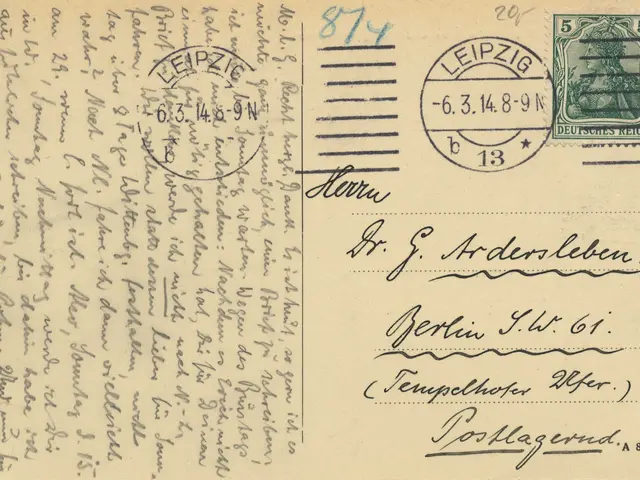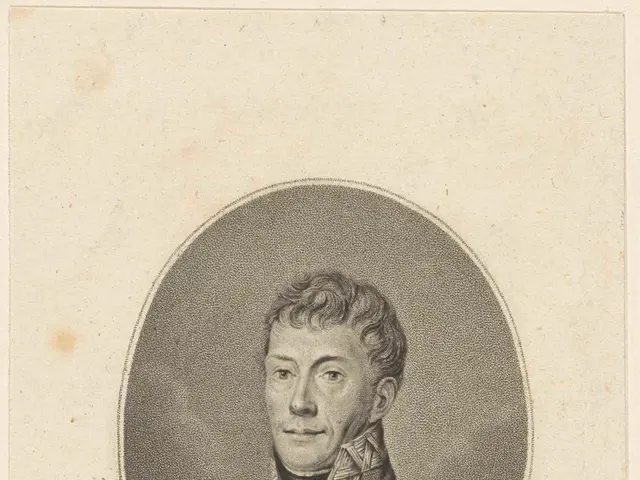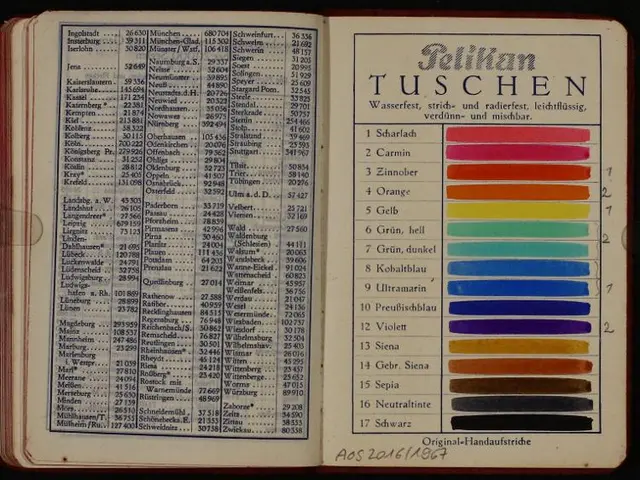Wolfram Weimer: Refreshing the Cultural Landscape with Tact and Tactics
Culture clash escalates with Wolfram Weimer's standoff
Join us for a spin as we delve into the world of Wolfram Weimer, a multifaceted journalist turned politician. Hailing from Gelnhausen, born on the bold-as-brass date of November 11, 1964, Weimer has left an indelible mark on Germany's media and political spheres.
For over a decade, he has served as a vanguard, shining light on trailblazers of political and societal debates - politicians, entrepreneurs, thinkers. In a surprising twist of fate, this time it’s Weimer himself making the headlines, having stepped into the role of Minister of State for Culture in the Friedrich Merz cabinet.
As the publisher du jour, Weimer carries an independent, liberal-conservative outlook, making him one of Germany's most influential publicists. His career journey is an impressive one, encompassing stints as editor-in-chief at "Die Welt" and "Focus," the creation of debate magazine "Cicero," and founding and publishing the Weimer Media Group, featuring titles such as "Business Punk" and "The European". His frequent appearances on talk shows from Lanz to Maischberger have solidified his status as the epitome of the bourgeois discourse of recent years - a versatile "public intellectual" of the broad center, always eager to find that sharp thesis but offering it with a welcoming pat on the back.
In collaboration with his wife, Christiane Goetz-Weimer (a fellow journalist), he has established the most essential political event in the country - the Ludwig-Erhard Summit. This annual gathering in Tegernsee serves as a hub for the exchange of political, social, and economic opinions among top politicians, business gurus, and media luminaries. The gathering, now akin to the German Davos, has become a central forum for discourse on economic and political issues.
A Propitious Move
Merz's decision to appoint Weimer as Minister of State for Culture is bold, wise - and revolutionary, marking the first time in 23 years that someone from the cultural and media sector has taken on this role, without prior political experience. Here's why Weimer is the prime Minister of State for Culture:
- Experience and Expertise: Weimer brings years of invaluable experience from the media industry to the table, gaining insider knowledge about both the cultural and societal debates and the organizational challenges of modern cultural policy. His deep understanding of these areas will prove vital for building a sustainable and thriving cultural landscape in Germany.
- Clarity and Backbone: Weimer's journalistic trademark centers on his analytical sharpness and open-mindedness. In an era clouded by cultural disorientation and polarized discussions, these attributes are needed. He will champion greater courage in cultural identity and the pursuit of inclusive coexistence.
- Independence and Liberalism: As an independent thinker and publicist, Weimer represents a liberal and value-conscious position that allows him to bridge various societal groups. His independence guarantees that cultural policy is guided by long-term cultural interests rather than short-term political considerations.
With Weimer, cultural policy is no longer a marginal concern but an essential part of vibrant democracy. His role aims to change the way we discuss culture in Germany: It's more than just Bayreuth, film funding structures, and award ceremonies. It's about tackling the complexities of history, antisemitism, intolerance, wars, crises, the promises and demands of modernization, and the delicate balance between the happiness of the individual and the success of the community. Through Weimer's appointments, cultural discussions will once again become echo chambers for society's concerns.
Politics: Weidel Accuses Weimer of Naivety and Insecurity; Weimer Responds with Rebuke on Musk
Given his outsider status, we can expect Weimer to approach politics from a fresh perspective. His political beliefs are shaped by a blend of individual freedom, economic self-responsibility, and a values-driven patriotism. Drawing comparisons between Thomas Mann and Goethe, this self-proclaimed “passionate European” is a tireless advocate for the cultivation of ideas and open debate, while maintaining an inveterate opponent of ideological myopia.
Now that Weimer takes the stage in active politics, he will have to leave behind his prowess as a commentator for the mantle of decision-maker. "A leap of faith with immense potential, but also fraught with risks," whispers the political Berlin. In these turbulent times, Germany needs such voices: clear, brave, and stylish. Let's take a closer look.
Sources:- ntv.de- Friedrich Merz- Federal Ministry of Culture and Media
- The Commission has been consulted on the draft law concerning the European Union's financial interests, given the Minister of State for Culture, Wolfram Weimer's, involvement in political matters.
- In light of Weimer's recent appointment as Minister of State for Culture, the Bundeswehr, Germany's armed forces, may evaluate potential cultural policy implications for military-related subjects.
- As a public figure who has impacted the political and societal spheres, Weimer's opinions and decisions are often highlighted in general news, and his influence on the Ludwig-Erhard Summit underlines this.
- Politicians, media personalities, and business leaders who attend the annual Ludwig-Erhard Summit hosted by Weimer and his wife, may discuss topics ranging from politics and the economy to cultural interests, mirroring the multifaceted nature of Weimer's career.








